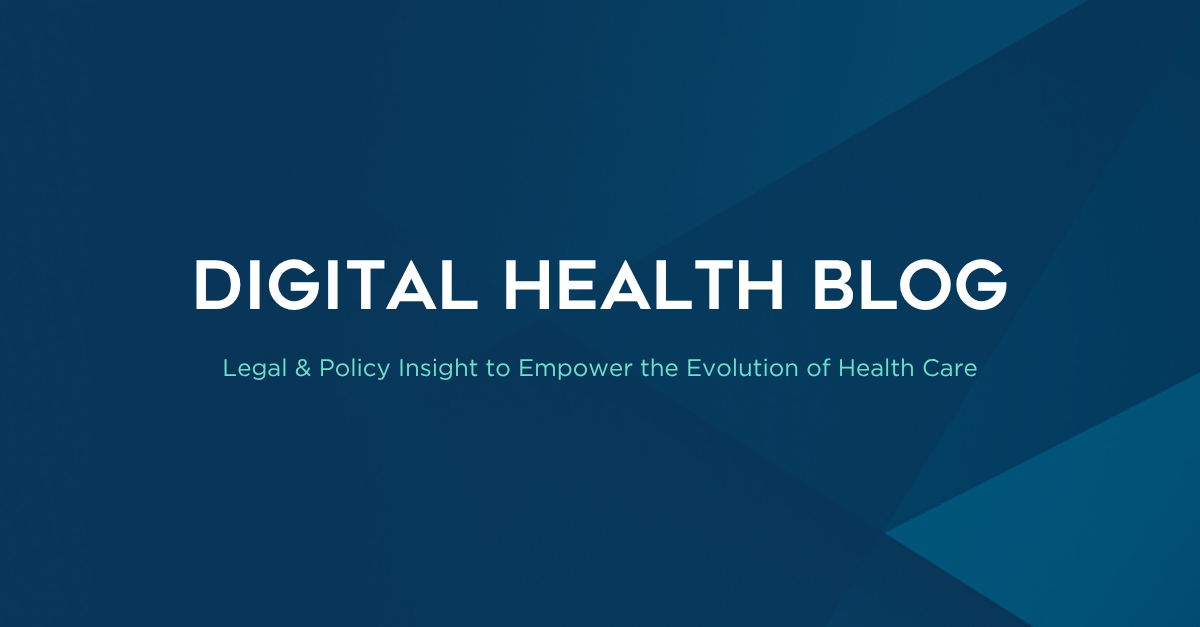Senate Passes Continuing Resolution to Fund Government
Last night (November 10), the Senate voted 60-40 on a measure to fund the government through January 30. The House of Representatives has been called back and could vote on the measure as early as Wednesday. The bill is likely to pass in the House despite some pushback. After final passage in the House, President Trump will quickly sign it into law and reopen the government later this week. The bill retroactively extends health care extensions through January 30 including telehealth waivers.
Telehealth Uncertainty Remains after 2026 Physician Fee Schedule
While CMS finalized a number of telehealth policies in the 2026 Medicare Physician Fee Schedule (PFS) (see below), it did not include a prior telehealth provider enrollment flexibility that is set to expire December 31, 2025.
Previously, in the 2024 and 2025 PFS final rules, CMS stated that through CY 2025 it would permit a distant site practitioner to use their currently enrolled practice location instead of their home address when providing telehealth services from their home. In the most recent CY 2026 PFS, however, CMS did not include language extending this flexibility for practitioners. This change has been estimated by an industry association to “result in up to a fortyfold increase in the number of billing addresses tracked and reported to CMS by a health system,” and may add significant operational costs.
In response to privacy concerns raised by commenters, CMS noted that it has provided information on how to suppress street address details as providers. In addition, the agency noted that any updates related to the policy will be issued via subregulatory guidance. We’ll continue to monitor and provide updates.
CMS Finalizes Digital Health Proposals in 2026 Physician Fee Schedule
On October 31, 2025, CMS released the 2026 Medicare Physician Fee Schedule (PFS) which sets payment policies for the upcoming year. CMS is finalizing the following telehealth policies:
- Permanently removing frequently limitations for subsequent inpatient visits, subsequent nursing facility visits, and critical care consultations;
- Permanently adopting a definition of direct supervision that allows physicians/supervising practitioner to provide supervision via real-time audio and visual interactive telecommunications;
- Permanently allowing teaching physicians to have a virtual presence in teaching settings in clinical instances;
- Adding several services to the Medicare Telehealth Services List, such as multiple-family group psychotherapy; and
- Modifying the process to add services to the Medicare Telehealth Services List
CMS is also finalizing other digital health policies, including expanding access to digital mental health treatment (DMHT) devices to include payment for devices used in the treatment of Attention Deficit Hyperactivity Disorder (ADHD). Additionally, CMS is reviewing responses on comment solicitation regarding separate coding and payment for services describing digital tools used by practitioners as part of a mental health treatment plan of care.
Remote Monitoring Adoption Linked to Higher Medicare Revenue and Outpatient Visits, Study Finds
A new study published in Health Affairs found that primary care practices using Remote Physiologic Monitoring (RPM) experienced a 20% increase in Medicare revenue, along with a rise in outpatient visits. These findings reinforce RPM’s value in chronic care management and its potential to improve patient outcomes through more consistent engagement.
As RPM adoption accelerates, providers and RPM companies face increasing regulatory scrutiny, particularly around billing practices, documentation standards, and fraud and abuse risks. Legal counsel can support stakeholders in developing compliant RPM strategies, structuring contractual relationships, and ensuring operational alignment with Medicare requirements.
UnitedHealthcare Narrows Remote Monitoring Coverage Starting January 2026
Effective January 1, 2026, UnitedHealthcare will limit reimbursement for remote patient monitoring (RPM) to two conditions: chronic heart failure and hypertensive disorders during pregnancy. The policy applies across Medicare Advantage, commercial, and Medicaid plans, and will exclude coverage of RPM for commonly monitored conditions like type 2 diabetes, COPD, and general hypertension.
UnitedHealthcare cites a lack of sufficient clinical evidence for RPM’s effectiveness outside the two covered conditions. However, critics argue that the policy overlooks well-established data, may disrupt care for millions of patients currently using RPM for chronic disease management, and raises legal questions under the Medicare Advantage statute.
OpenAI Restricts Use of ChatGPT for Medical Advice
OpenAI recently updated its usage policy to prohibit individuals from using ChatGPT and other OpenAI platforms to provide medical advice, reinforcing the distinction between AI-generated health information and licensed clinical guidance. The policy, announced on October 29, 2025, reflects growing industry and regulatory concern about the use of generative AI in health care settings, particularly where users may misinterpret outputs as diagnostic or treatment recommendations. The policy changes came just days before seven lawsuits were filed in California state courts alleging wrongful death, assisted suicide, involuntary manslaughter, and a variety of product liability, consumer protection, and negligence claims against OpenAI.
Companies integrating LLMs into patient facing platforms should increase their diligence to ensure that product messaging, user interfaces, and disclosures align with both platform policies and applicable health care regulations, including whether the platform is engaged in the practice of medicine.
Senator Cassidy Introduces Bill to Expand Federal Oversight of Consumer Health Data & Tighten HIPAA Access Rights
Earlier this month, Senator Bill Cassidy introduced the Health Information Privacy Reform Act (S. 3097), which would significantly expand federal oversight of health information and reshape the HIPAA right of access provisions. As proposed, the bill would authorize HHS, in consultation with the FTC, to regulate individually identifiable health information held by “regulated entities” and “service providers” that currently fall outside HIPAA’s scope – including many health apps, consumer-facing wellness platforms, and data intermediaries. The bill would also narrow HIPAA’s right of access provisions by requiring patients to provide a valid authorization whenever they direct copies of their records be sent to a third party for reasons other than treatment, payment, or health care operations, and it would allow states to set fees for such third-party transmissions.





